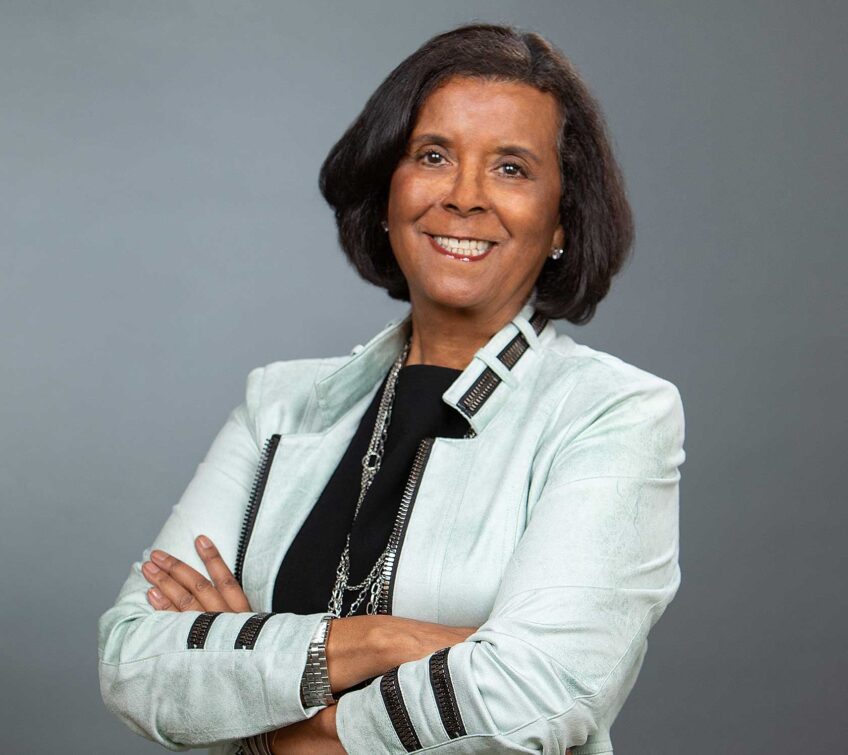The business of music
At Berklee’s ICE, music students absorb entrepreneurship

The Institute for Creative Entrepreneurship at Berklee College of Music is examining the business of music in a way the college hasn’t done before, and pushing its students toward a greater impact on an evolving industry. The effort also is resonating with both U.S. and international students, who hope what they learn can be applied to the music business in their home countries.
Launched in January 2014, the ICE works to develop the entrepreneurial mindset in the school’s music students. The hope is to nourish entrepreneurial careers, not just music careers, as well as to support the creation of products, services and businesses for the music industry.
All of Berklee’s students still play some kind of instrument or perform — as is the school requirement — but some of its ICE students dream not of a chart-topping hit song, but of a startup that will rock the music world.
ICE Managing Director and Founder, Panos Panay, points out that the two goals are not as separate as people might think. While most people associate musicians and artists with creativity, not as many think about creativity as it applies to entrepreneurship.
Panay is trying to show Berklee students that the same creativity and improvisation that is crucial to being a musician can also lead to success in the startup world.
Entrepreneurs start with an idea for a product or company, but have to evolve or change as they move toward market, just as musicians start with an idea for a song, but have to shift and change to what sounds best before the finished version is ready.
Panay also compares the passion that is necessary to be an entrepreneur and a musician.
“Most successful entrepreneurs don’t start a business just to make a lot of money, just like most [musicians] are not musicians to become famous,” Panay said. “They both want to change something. They want to change the world, affect the world.”
In Panay, Berklee has a great model for a musician-turned-entrepreneur. The 1994 Berklee graduate started Sonicbids, an online platform for bands to book gigs and market themselves, around the turn of the century and led the company as CEO for 13 years, building a subscriber base of half-a-million bands and 35,000 promoters in 100 countries. He sold the company in 2013 for a reported $15 million.
While Panay may not expect every Berklee student that marches through ICE to find the same success, he is not ruling it out, either. The convergence of the Internet, music and technology has made the music industry one of sweeping change in which startup businesses have created a cacophony of change and disruption to decades-old ways of doing business. To Panay, Berklee is the perfect breeding ground for the next businesses to bring change.
“We think there is a symbiosis that exists between music and technology, which is described as more adversarial than it is. We are trying to bring these worlds together,” Panay said. “The music business used to be about a hipster and a hustler. Today it is a hipster, a hustler and a hacker. We like to demystify the concept of being an entrepreneur and demystify what it means to work in this space.”
While Berklee has long had music business as a major, ICE spans the campus and hopes to touch all students, even those who might never think about the business side of their performing. The institute’s programs include creative entrepreneurship workshops, sponsored internships, guest lectures, a startup lab and a business incubator.
International flavor
Berklee senior Thomas Chardin has already launched a startup along with fellow Berklee student Alexander Bercow, and credits the support from ICE in making it possible. The company, Bandpass, puts control of lighting and visuals at music shows into the hands of the audience and helps fans connect with live performances. Bandpass was run through ICE startup lab and is now being developed further at the college’s incubator.
“The institute gave us the framework to know we can make it from an idea to an actual business,” said Chardin, a percussionist from France. “It gives you this whole methodology on how to take an idea and build it from scratch, which is really valuable.”
Chardin said he was drawn to ICE to supplement his music business management major as well as to fuel his entrepreneurial desires. His hope is to get his business up and running here in the Boston area, but ultimately return to France and the European market as well.
Fellow Berklee senior Natalie Cotton, who came to the college from Puerto Rico in January 2014, knew she wanted to be a music business major but admitted she wasn’t even sure what being an entrepreneur meant before coming to the school. Now, the vocalist sees a bright future developing music-related businesses.
She is particularly interested in launching a business that can address needs in the music industry in Puerto Rico and is already work on an early-stage startup.
“People think all the jobs in the music industry are here,” Cotton said. “But I look at Puerto Rico, and where they see there are no jobs, I see a lot of opportunity. I want to be a facilitator and help people — and more importantly, help artists — so the art back home can continue.”
Cotton also has helped fuel the entrepreneurial environment at Berklee. This summer, along with Karin Harvey, she started the Student Entrepreneurship Association of Berklee. Both say they were impressed at how many students from all different majors at the school have become involved.
“Students want to know how they can develop themselves and how they can work on their ideas,” Cotton said. “To have people to believe in your ideas, and that you want to be an entrepreneur and want to start something, that is amazing.”
Both Cotton and Harvey are vocalists, and Harvey is also a music business major.
Harvey, who came to Berklee from Mexico two years ago, continues to juggle it all — she is studying singing and the music business, working at a Boston University-based startup and considering going to Los Angeles to work in artist management — as is quickly becoming typical of a modern music student.
“[ICE] has helped students understand the relationship between music and the business side in general,” said Harvey. “I think it is great to balance my musical interests and continue to pursue the business side.”






